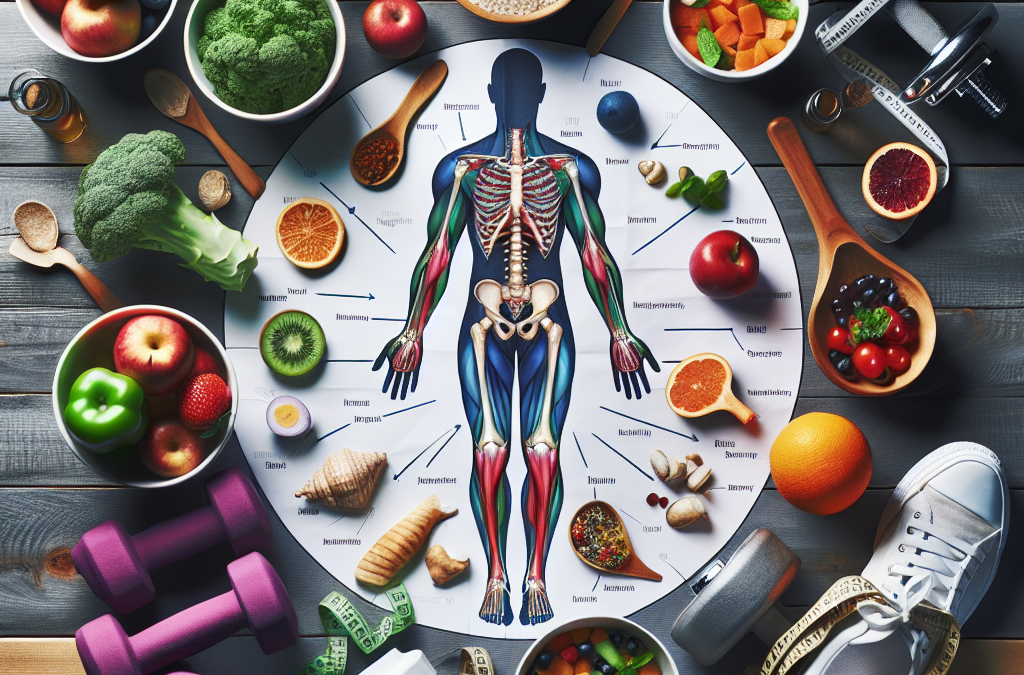Understanding Joint Health
What Are Joints?
Let’s kick things off with the basics—joints are those nifty connections between our bones that allow us to move. Think of them as the hinges on a door. If they’re well-oiled, they swing open smoothly. But if they’re rusty or damaged, good luck getting that door open! Proper joint function is super important for everything we do, from jogging to simply getting out of bed in the morning.
Over time, wear and tear can take a toll, especially if we don’t treat our bodies right. Each joint has a cushion called cartilage, and that’s what keeps our bones from grinding against each other. But if there’s too much body weight pressing down on those joints, it can lead to deterioration. So, it’s crucial to understand how what we weigh impacts our joints.
Creating awareness about joint health is a step in the right direction. Knowledge is power! And when we understand our joints better, we can make informed decisions about our lifestyle and weight management strategies.
The Impact of Weight on Joint Health
How Extra Weight Affects Joints
Now, let’s get real about weight. Every extra pound we carry can add a lot of strain to our joints, especially those poor knees and hips. I can tell you from personal experience, when I was carrying around more weight, I felt it in my joints all the time—especially after a long day on my feet.
Research has shown that, for each pound of body weight lost, there’s a four-pound reduction in knee joint load. That’s a game changer! Even a small weight loss can make a significant difference in joint health and performance, so why not try it, right?
The bottom line here is to not underestimate the impact of those extra pounds. It may seem trivial, but taking charge of your weight is like giving your joints a high-five—they’ll definitely thank you for it!
Strategies for Effective Weight Management
Healthy Eating Habits
Let’s talk food! Adopting healthy eating habits is one of the easiest and most effective ways to manage weight. For me, it wasn’t just about losing weight but about gaining energy and feeling better overall. I swapped out sugary snacks for fruits and nuts, which really kept me full and satisfied.
The Best Joint Support (Naturally) Starts with Organic Nutritional Support!
Get 40% Off Here ...
Portion control is key, too. Instead of large servings, I started focusing on balanced plates. You know, filling half with veggies, a quarter with protein, and a quarter with whole grains. It’s a simple trick that really does work wonders.
And don’t forget to hydrate! Drinking enough water is essential for overall health, and sometimes we mistake thirst for hunger. So, keep that water bottle handy to support your weight management efforts.
The Role of Exercise
Getting Moving
Okay, we’ve got the food aspect down; now it’s time to get moving! Regular exercise is another essential ingredient in the weight management recipe. I used to think hitting the gym was a hassle, but honestly, finding a fun activity made all the difference for me.
Good Joint Health Requires Good Nutrition Health. Click Here for More Info
Whether it’s dancing, biking, swimming, or a brisk walk in the park, what matters is that you enjoy it. I found that mixing it up helps keep things fresh. My joints feel much better when I stay active, and it lifts my mood, too. Exercise isn’t just about losing weight; it’s also about gaining strength and endurance, which further benefits our joints.
Oh, and stretching? It’s a crucial part of any workout routine. Keeping those muscles flexible and the joints limber can help us avoid injuries. So don’t skip those warm-ups or cool-downs!
Long-Term Commitment to Joint Health
Making Lasting Changes
To truly benefit your joint health, it’s essential to think long-term. Weight management isn’t a quick fix; it’s a lifestyle change that takes commitment. This means making gradual changes that you can stick with over time. Trust me, I’ve been there, and the journey can be just as rewarding as the destination.
Setting realistic goals helps. Instead of aiming for drastic weight loss, I focused on small, attainable objectives—like losing a pound or two each week. It may seem slow, but that steady progress adds up, and it’s way more sustainable in the long run.
Lastly, celebrate your victories, no matter how small. Maybe you exercised three times a week for a month or chose a salad over fries one day. Recognizing these wins keeps you motivated and reinforces the positive habits you’re creating.
FAQ
1. Why is weight management important for joint health?
Weight management is crucial because excess weight adds stress to weight-bearing joints like the hips and knees, increasing the risk of joint pain and deterioration.
2. What are some effective ways to manage weight?
Effective weight management strategies include adopting healthy eating habits, increasing physical activity, and making long-term lifestyle changes rather than short-term diets.
3. How does exercise benefit joint health?
Exercise helps strengthen the muscles around the joints, improves flexibility, and can reduce pain and stiffness, promoting overall joint health.
4. Are there specific diets that are better for joint health?
While there isn’t a one-size-fits-all diet, anti-inflammatory foods like fruits, vegetables, whole grains, and healthy fats (like omega-3s) can support joint health.
5. How can I stay motivated to manage my weight?
Setting realistic goals, finding enjoyable activities, and celebrating small successes can help you stay motivated in your weight management journey.




